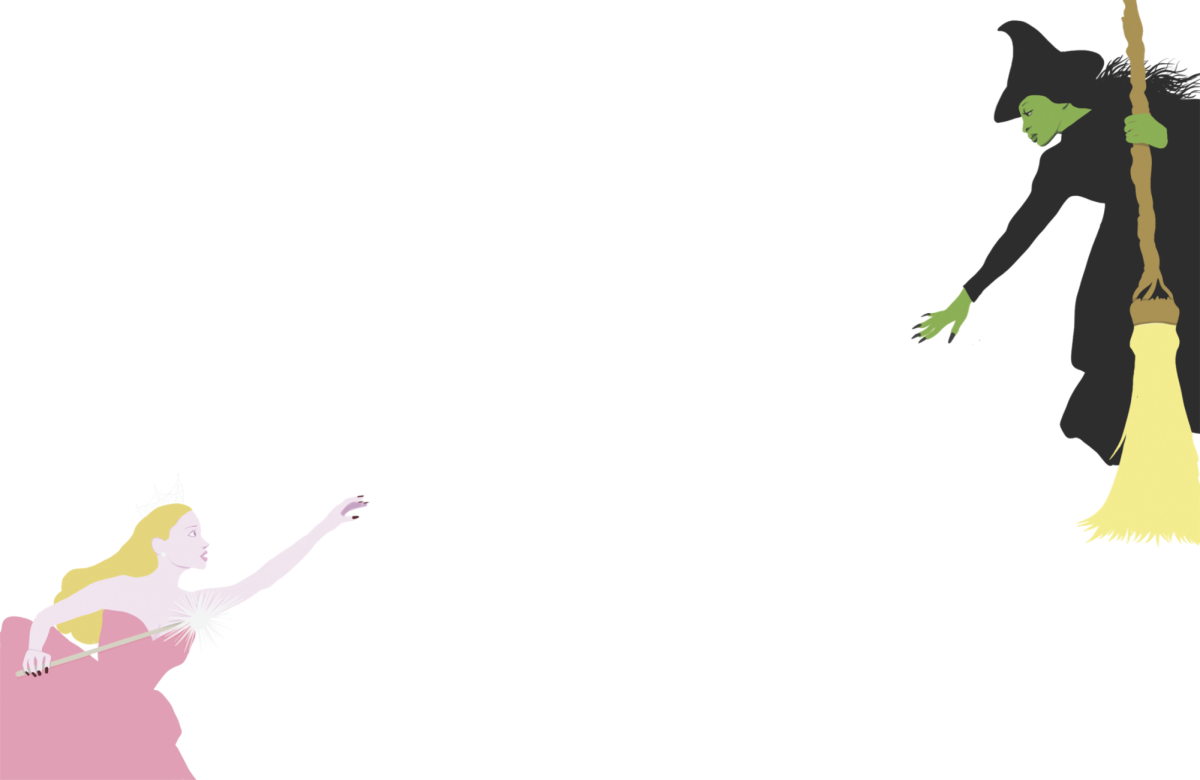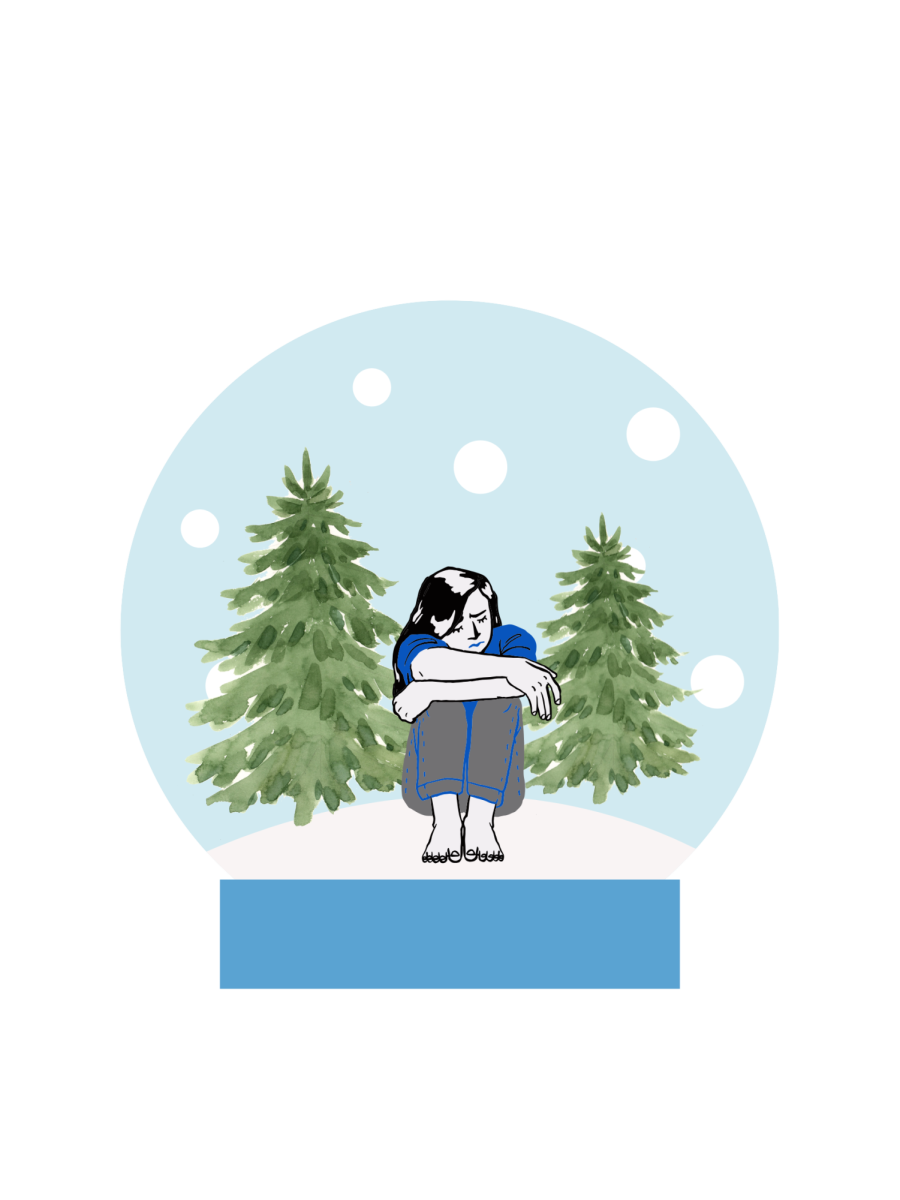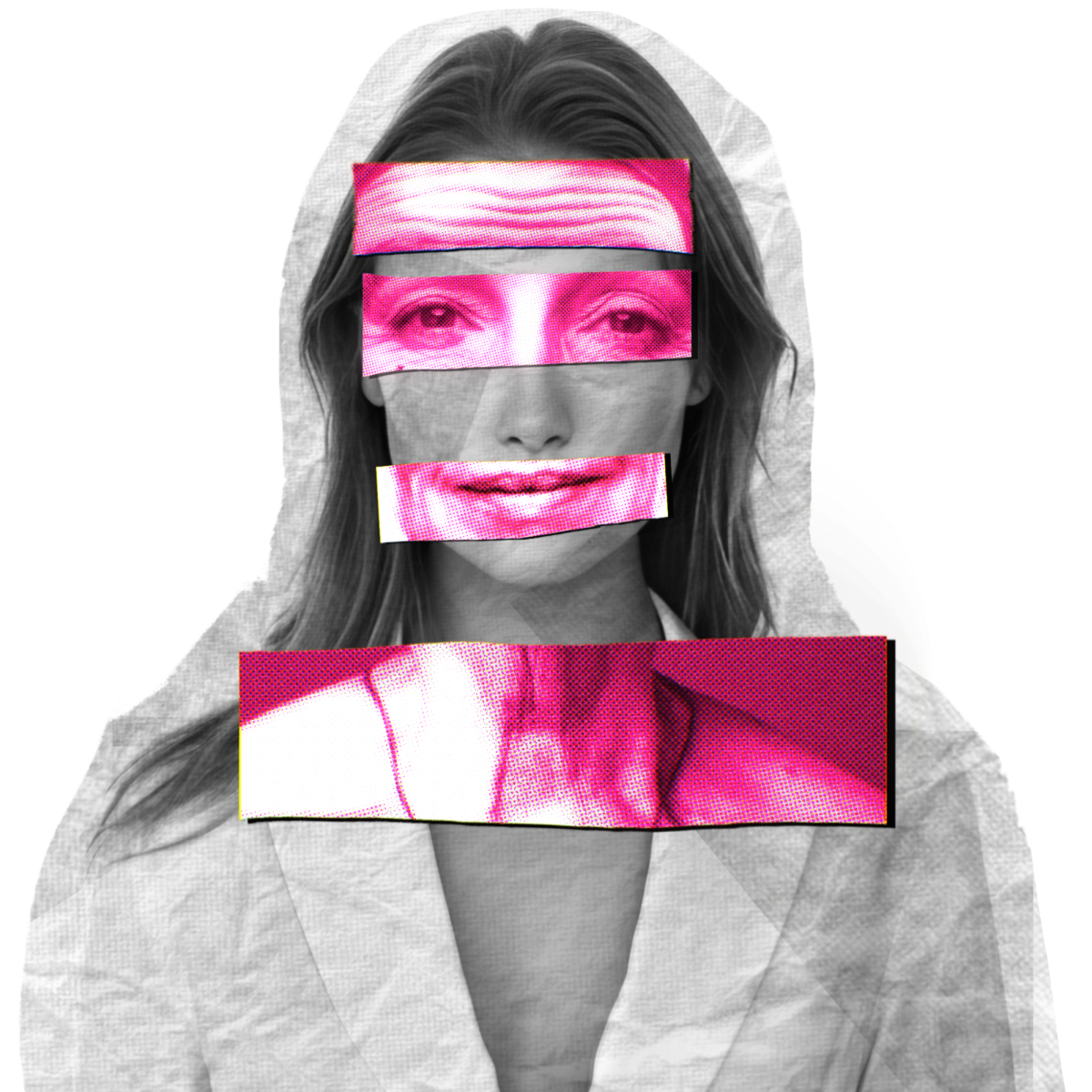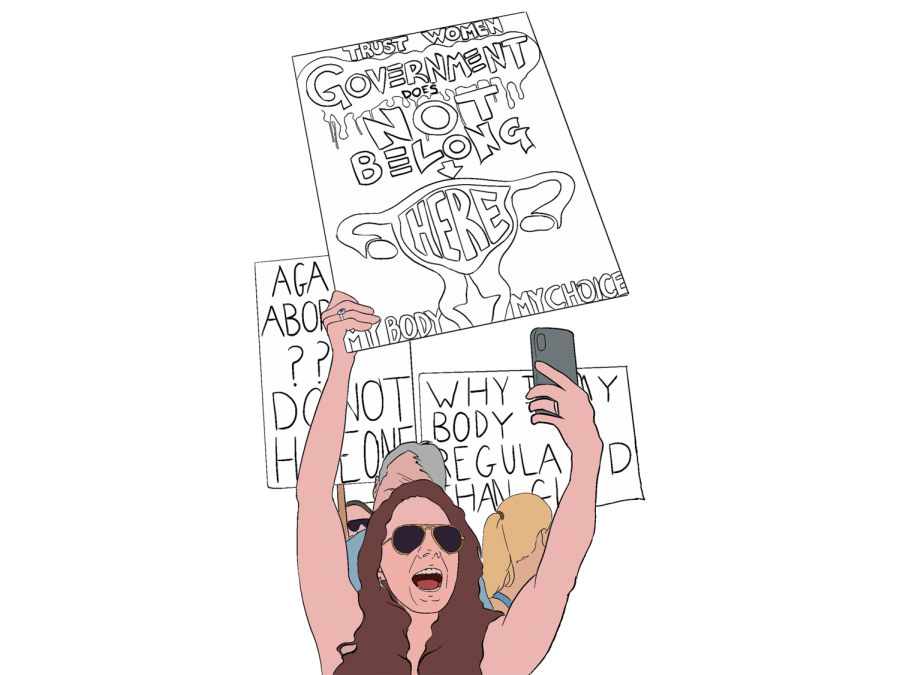Whose Body Matters More?
Texas recently put in place the most restrictive ban on abortion that our country has ever seen. The dispute is ongoing and controversial between those who are pro-choice and pro-life.
November 17, 2021
My body, my choice; this slogan is recognizable from billboards to cardboard cutouts.
The battle over abortion rights is a controversial topic that is erupting across our country. From political debates to family discussions, the questioning of the morality of abortion is being disputed.
Texas’ recent restrictions on abortions and the legal disputes within the Supreme Court have opened up the discussion across America about the ethics and morality of abortions.
At the heart of these conversations are two conflicting groups: pro-choice and pro-life.
These two perspectives differ drastically. The pro-life stance typically revolves around the child’s wellbeing and rights as a human being. At the same time, the pro-choice ideology focuses on women’s rights over making their own choices about their bodies.
On September 1, Texas’s Governor Greg Abbott signed the Texas Heartbeat Act, which restricts abortions after a pregnancy has lasted more than six weeks.
The reason for the restrictions being this limiting is because around the six-week mark is when a doctor can first notice a heartbeat within the fetus.
Most women can only tell that they’re pregnant around four weeks into their pregnancy, at the earliest, so this law leaves little to no time for women to have an abortion.
If someone is reportedly attempting to terminate a pregnancy or even aiding a woman searching for an abortion, that person will be charged with a $10,000 fine.
This ban is one of the strictest laws our country has ever faced and the most dire assault on womens’ bodies our country has ever seen.
Following the federal protests of Texas’s abortion ban, Jessica Glenza of The Guardian highlights the emotional state of shock of protesters.
“A state may not ban abortions at six weeks. Texas knew this, but it wanted a six-week ban anyway, so the state resorted to an unprecedented scheme of vigilante justice that was designed to scare abortion providers and others who might help women exercise their constitutional rights.”
Not only is the period of time in which a woman can get an abortion slim, but there are also no exceptions when it comes to cases of rape or incest.
Only a woman who would be at risk of serious and permanent bodily harm or death during the birthing process is permitted to receive an abortion.
One prominent organization protesting Texas’s immobilizing ban is Planned Parenthood, a global organization that supplies sexual health care and information, including abortion procedures.
The organization announced, “This is the loudest alarm yet that abortion rights are in grave danger, in Texas and nationwide. We will continue to fight this in the courts and we are taking to the streets.”
Planned Parenthood is the innovator of hundreds of protests across the country dedicated to battling the recent abortion restrictions, expanding from Alaska to Florida, including locally in Santa Barbara County.
Junior Claire Kellett shared her view on the new restrictions on abortion in Texas and spoke about her experience at a locally organized Planned Parenthood protest against the expanding restrictions of abortion.
“Senator Hannah-Beth Jackson (D-Santa Barbara) was amazing. She focused on how the restrictions on abortion aren’t going to stop abortions, they are just going to stop safe abortions.”
The topic of abortion is intensely complicated, for it’s the battle between whose life and body are more significant: the mother or the unborn child?
The pro-life point of view backs the idea that a growing fetus should have the same rights a human being.
Still, by taking away a woman’s right to make decisions for her own body, one is disregarding a woman’s right to choose.
Another factor of the abortion discussion is the argument over distinguishing when exactly a fetus passes as operative or becomes self-aware.
Some say life begins at conception, while others say abortion should be banned after an embryo transitions into a fetus.
As with all controversial topics, there are hundreds of different opinions on this matter, and this constant political tug-of-war between pro-life and pro-choice demonstrates just how divided our country truly is.
What many don’t understand is that the ban severely affects the women of Texas and potentially women in other states, because, although abortion is legal in all of the 50 United States, the passing of the Texas law has opened the door for other states to start putting their restrictions in place.
This debilitating law is providing a blueprint for states, like Alabama, Mississippi, and others, who have protested the freedom of abortion in the past.
Claire, born in Montana, shared the fear she holds for people in her hometown who may be deeply affected by this ban.
“My friends in Montana, I’m really nervous for because they have a very rightwing government and it was already difficult to go to Planned Parenthood because of the pro-life protests.”
“A few years ago, a Planned Parenthood in my hometown was set on fire by pro-lifers, which is so ironic because how are you gonna be pro-life and then set a building on fire!”
It is a constitutional right to be able to choose. The matter of whether or not a woman should have the power to choose is being politically debated.
Not only has this concern become political, but it also is being fought by the people who can’t possibly speak on behalf of the women of America: the majority, men.
Those who are making the decisions for women in America have to be willing to listen to the women in America.
Women haven’t faced such restricting and life-altering laws since the early 1900s, and the challenges to women’s rights are still unfolding with every voice that rings out and with every protest that takes place.
This law is a step backward for feminism and women’s rights in our country.
When asked about how she believed this ban would affect her, Claire said, “It affects me in the way that—those other people can’t stick up for themselves. We are so privileged to still have that leeway for healthcare and abortion, we should stand up for them and help those in need.”
As high school students grow up in a world where discrimination based on sex is becoming normalized, we need to recognize the progressing issues and use our voices to retaliate.



































